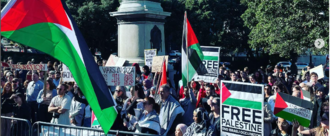-
Wayne Brown: Don't Cut Community Services!NO CUTS Wayne Brown’s Budget 2023/24 is proposing to cut funding to crucial community support services during a cost of living and climate crisis. The people of Auckland are deeply concerned about the proposed budget. We understand that the Council is facing financial challenges, but we urge Auckland Council to reconsider these cuts as they will have a severe impact on the community. “Cutting regional community focused initiatives … of all groups working with Māori, Pasifika, youth, refugee, new migrant and rainbow communities.” - Page 30, Te Wāhanga Tuatoru: Te Pūtea e Marohitia Ana, Annual Budget Proposal 2022/23. We can see the budget has targeted marginalized communities, yet does not suggest cuts to industry and business whatsoever. The proposed budget cuts will have far-reaching consequences for all Aucklanders, but especially our most vulnerable residents, including children, the elderly, the working poor, and those with disabilities. Cuts to climate change, social services, community venues, public transport, arts,and education will have a devastating impact on these communities, and protesters are determined to make their voices heard. The proposed cuts to community services, including libraries, community venues and centers, youth and homelessness, early childhood education, Arts and culture, water quality and public transport, will have a negative impact on the quality of life for many Auckland residents. These services are essential for the well-being of our community and provide opportunities for social interaction, education, and access to essential resources. Furthermore, the proposed cuts to environmental initiatives, including park maintenance and waste management, will have a detrimental effect on our environment. These initiatives are critical to the sustainability of our city and the protection of our natural environment and resources. We understand that difficult decisions must be made regarding the budget, but we urge the Council to prioritize the needs of the most vulnerable. We believe that alternative solutions and a better budget is possible. The Auckland council’s feedback report suggested that the majority of Aucklanders reject this proposed budget, and it is not suited to serve Auckland residents. The sale of the airport shares is not necessary or helpful and will take Auckland backwards. The airport shares are an important revenue stream, the airport is increasing in value, and it is an asset that the Council can borrow against. The 18% shareholding is also an opportunity for public voice on the future of the airport, a strategic asset - and it is important that the Council holds onto public control in the face of climate and health emergencies. The Community Coalition against the Cuts demands that Auckland Council, Mayor and Councilors listen to Aucklanders. Consider and implement the voices of Aucklanders who took their time to give their feedback. We fully reject this proposed budget, and we demand the following: 1- NO CUTS TO REGIONAL & COMMUNITY SERVICES 2- INCREASE RATES & DEBT 3- NO SALE OF AIRPORT SHARES The super-rich must pay for this budget deficit, not the most vulnerable. We demand that any shortfall in the Council's books should be filled through increased rates on big business, and charges on luxury items such as private helicopters and super-yachts, not cuts which hit the poorest hardest. We need to be expanding services, not cutting them. We demand that the Council expands public transport, making buses and trains free and frequent, and takes more action on climate change amidst a climate crisis. We demand more funding to tackle poverty and homelessness. Therefore, we call on Auckland Council to reconsider the proposed budget cuts and to find alternative solutions that do not compromise the well-being of our community and our environment. We fully reject this budget we will not sit by quietly. We say, NO CUTS! Community Coalition Against Cuts242 of 300 SignaturesCreated by Community Coalition Against Cuts

-
Remember on our streets the downfallen & erased founders of the Sarjeant Gallery / Te Whare O RehuaOUR streets should recognize OUR stories and OUR whakapapa. We want our city to reflect its people, past and present.That is why our streets should recognize our stories and our whakapapa. Donald Hosie was the young architect of the Sarjeant Gallery who died fighting for his country in Passchendaele in 1917. Instead his boss's name appears because of a lie that Whanganui Council knew at the time to be false. Hossie deserves recognition and a street is a fitting way to do this. Mayor Charles Mackay was the man who drove the vision and building of the Sarjeant. After his homosexuality was exposed, Mackay Street was renamed Jellicoe Street. In recent years his erased name has been reinstated to the Sarjeant foundation stone, his portrait rehung in Council Chambers, a 2022 book about his life published and in 2023 his office recognised as a Category 1 historic site by Heritage NZ. What remains outstanding is the erasure of “Mackay Street” from Whanganui maps. Let us truly celebrate our community and honor the past of these two men who made the Sarjeant what it is now when the Sarjeant reopens in 2024. To use the words of Henry Sarjeant do this "for the inspiration of ourselves and those who come after us".14 of 100 SignaturesCreated by James Barron

-
Open Letter: Ban Mining in Conservation Land NowThe Labour Government has a long held policy of extending Schedule 4 over the Southern Hauraki and has had a policy of no new mines on conservation land since 2014. Since taking office in 2017, the Party has failed to make either policy law. We are writing to you now as Conservation Minister to challenge you to step up and prevent mining companies from undermining Hauraki / Coromandel and all conservation land nationwide. We believe that in order to retain any credibility around conservation, your Government must fulfill the commitment made upon first taking office by passing a law that will fully protect all conservation land from mining. We understand that negotiating with tangata whenua takes time, but that specific Te Tiriti obligation can be written in to the law. We are in a biodiversity crisis, we are in a climate crisis. Why would we compromise even part of one of our biggest assets, our biggest carbon sinks, our last bastion of the unique and special ecology of Aotearoa New Zealand, conservation land, by allowing and enabling mining activity in these places. You as Minister have the power, and the responsibility, to ensure that our children and grandchildren can have a relationship with the natural world that sustains us in the years to come; the responsibility to ensure that all the unique flora and fauna reliant on these spaces can survive and flourish into the future, the responsibility to provide for future generations.1,235 of 2,000 SignaturesCreated by Coromandel Watchdog
-
Introduce a Basic Income in Aotearoa New ZealandWe believe recent disasters have heaped misery on people, many of whom live in permanent crisis. In our view, previous actions have been unsuccessful in preventing persistent poverty; poverty has been exacerbated by recent disasters; and the current system is not fit for purpose. A Basic Income can be a foundation upon which an equitable system can be built. We feel we urgently need a system that is both unbureaucratic and reliable, to lift people out of poverty and provide help when needed. Click down below to read our Open Letter https://www.scoop.co.nz/stories/PO2304/S00166/an-open-letter-to-parliament-from-basic-income-new-zealand.htm983 of 1,000 SignaturesCreated by Te Utu Tika Hei Oranga i Aotearoa - Basic Income New Zealand
-
Fix the CodeEveryone deserves to be kept safe online. But NZTech’s Code of Practice for Online Safety and Harms does not go far enough to protect New Zealanders from the very real dangers of online harm. The Code aims to bring together social media platforms like Meta (which includes Facebook and Instagram), Google (including YouTube), TikTok, Amazon (including Twitch) and Twitter to set an industry standard for online safety in Aotearoa. The Signatories to the Code committed to provide annual reports on their efforts toward reducing risks and harms across a number of measures - a worthy goal, in theory. However there are very real problems with the Code as it currently exists. Our main concerns are: • The Code’s self-regulation is not credible. The Code fails to ensure independent oversight of the Signatories. While an ‘Oversight Board’ is being created, membership on that board is at the sole discretion of the social media companies and there are no credible safeguards to maintain or scrutinise the Board’s independence. Those impacted by these companies are not promised a voice nor the means to use it. • The Code isn’t focused on Aotearoa. We believe that the Code’s Signatories are seeking to benefit from our international reputation to influence global regulation. The Code invokes Te Ao Māori, but the content is generic, as are the proposed governance arrangements and the consultation process. There’s no mention of the specific challenges our communities face online nor how the Signatories are working to address those challenges. The initial global reports from the Signatories were very general statements of their global policies and many of the Signatories did not even provide minimal Aotearoa-specific data. • The Signatories’ community engagement has not been effective nor credible. This is particularly embodied by the inauthentic community engagement that has been performed. While many of the people at organisations like Netsafe and NZTech have done genuine and authentic work to try to engage with civil society to make the Code effective, and we do appreciate the mahi they have performed, they have been hamstrung by the Signatories’ decisions and objectives. This means while concerns and feedback have been carried back to the Signatories, they have not been taken on board nor implemented. That’s why New Zealanders need to come together to call for better protection. And that’s why the Coalition for Better Digital Policy, led by Inclusive Aotearoa Collective Tāhono, Amnesty International Aotearoa New Zealand and Tohatoha has been formed. Many of us have been constructively critiquing the Code since it was publicly released in 2022. As a group, we aim to enable robust, inclusive, and effective regulation of technology in Aotearoa, with a focus on upholding human rights and preserving the benefits technology can provide us. Our shared experiences have convinced us that the current processes being used will not make the Code truly effective. We are calling on NZTech and the Signatories to work with us to develop a process that meets the needs of everyone at risk of harm from these companies. Add your voice by signing the petition to call on NZTech to #FixTheCode.40 of 100 SignaturesCreated by Coalition for Better Digital Policy
-
Ensure tertiary students can sit exams without invasive barriersIt's invasive. RPNow requires all users to provide webcam access to their bedroom or private spaces and that data is collected and assessed by staff who do not work for the University, and that data is at high risk of being hacked or breached. It's inequitable. Students who cannot afford a laptop with webcam, microphone and those who do not have a strong internet connection can't access the examinations that they paid for. Students may not be able to book limited university spaces to sit these exams, or able to provide a safe quiet space at home to sit them. It's not culturally competent. Many of our tauira live in whanau based situations, that don't provide for silent or private spaces to take examinations at home. These students will fail if the microphone detects other voices speaking. It's just plain wrong. Students will go to other Universities that don't invade their privacy by implementing invasive and unsafe, low trust systems. Students have a right to be heard, and their voice matters. Universities should not be implementing significant changes to assessment without first consulting with students.9 of 100 SignaturesCreated by Jake Law
-
Make dental care free for allWhen our teeth and gums are looked after, our whole wellbeing is improved. Dental care means being able to share smiles with the people we love. It means being confident to connect socially and express ourselves. But people in successive governments have chosen to treat mouth health differently to the rest of our bodies by excluding dental care from the public health system. It’s the only aspect of health where people and families are expected to pay the full cost in the private market. As a result, far too many of us are locked out of proper care for our teeth and gums. 42% of adults in Aotearoa can’t afford dental care. For Māori adults, it’s 54%, and for Pasifika adults it’s 52%.[1] Untreated dental needs can lead to broken and decayed teeth, gum disease, diabetes, heart disease, Alzheimer's disease, and even potentially life-threatening situations.[2] It leaves whānau living unnecessarily with pain, shame, disrupted sleep, knocks to their confidence and mental health, and affects our ability to pursue work, education, and community goals. Bringing dental care into the public health system means everyone’s teeth and gums can be looked after. In Aotearoa, we choose to resource our public health services because we recognise that everyone deserves to be looked after. We already make sure children under 18 years old can access free dental care and it's time to extend that care to adults too. No one should be turned away from healthcare because of their incomes. That principle of care should include mouth health too. Now is the time for bold action that tangibly improves the lives of people in Aotearoa. Action that puts whānau wellbeing at the heart of our public services that are infrastructure of care. References: 1. Tooth be Told. Association of Salaried Medical Specialists. 2022: https://issuu.com/associationofsalariedmedicalspecialists/docs/asms220501-tooth_be_told 2. The Shocking State of Dental Care. North and South, March 2022: https://northandsouth.co.nz/2022/03/12/nz-dental-care/17,025 of 20,000 SignaturesCreated by Dental For All

-
Open Letter: Climate resilient recovery from Cyclone GabrielleOver the last 4 years, tens of thousands of people have hit the streets, signed petitions, raised their voices, and made shifts in their own life prompted by an understanding of how crucial this moment in time is. We happen to be alive in the window of time when we need to have addressed the climate crisis, before it becomes overwhelming. This presents an enormous responsibility but also an enormous opportunity. We hope you feel this as strongly as we do, as we approach the Climate Election. “Te toto o te tangata, he kai; te oranga o te tangata, he whenua.” While food provides the blood in our veins, our health is drawn from the land.120 of 200 SignaturesCreated by Intergenerational Climate Ambassadors
-
Open Letter: Pass a law requiring all employers to be transparent about pay gapsEveryone should be safe at work, treated with dignity, and rewarded fairly for their work. But right now, many of our friends, neighbours and family members aren’t being paid or promoted fairly, simply because of their gender or ethnicity. The recent Te Kāhui Tika Tangata Human Rights Commission National Pacific Pay Gap Inquiry Report found that in 2021 for every dollar earned by a Pākehā man, Pākehā women were paid just 89 cents. For Māori men that drops to 86 cents and Māori women 81 cents. For our Pacific whānau, men were paid just 81 cents and Pacific women only 75 cents. This gap means people are not only missing out on crucial wages but opportunities to fulfill their potential and make meaningful choices about their lives. By closing this pay gap we could ensure everyone in our communities has the opportunity to thrive and those families on the lowest wages can unlock the constraints of poverty. Supporting employers to do the right thing and to be transparent about their pay gap is a good first step to help close this gap. Many employers are already playing their part by reporting on their ethnic and gender pay gaps and taking action to close these. Organisations that have signed this open letter: AAAP ActionStation Aotearoa Amnesty International ANZ New Zealand Aotearoa Latin American Communities (ALAC) Auckland City Mission Auckland Women's Centre Aukilani Community Church Barnados Belong Aotearoa Centre for Pacific Languages Diversity Works DB Breweries Ltd E Tu F'ine First Union Fourshells Kava Lounge Gabriella Aotearoa New Zealand Global Women Inclusive Aotearoa Collective Tāhono Iranian Women in NZ K'aute Pasifika Trust Kore Hiakai (Zero Hunger Collective) Living Wage Movement Migrant Action Trust Migrant Workers Association Migrante Aotearoa New Zealand Nelson Tasman Pasifika Community Trust New Zealand Council of Trade Unions New Zealand Union of Students' Associations (NZUSA) NZ Council of Christian Social Services NZ Dairy Works Union NZ Ethical Employers Inc. NZEI Te Riu Roa Organise Aotearoa Pacific Women's Watch NZ (PWW-NZ) Pacific Pay Gap Campaign Pasifika Education Centre (PEC) Peace Movement Aotearoa Polynesian Panthers PSA Raise the Bar Renters United Salvation Army Save the Children SkyCity Entertainment Group Te Kāhui Tika Tangata Human Rights Commission Tertiary Education Union Te Hautu Kahurangi o Aotearoa Tōfa Mamao Collective Tongan Society South Cantebury Unite Union World Vision New Zealand Young Workers' Resource Centre Youth Employability, COMET AKL YWCA2,529 of 3,000 SignaturesCreated by Human Rights Commission
-
Create a Ministry of Green Works to build sustainable, resilient communitiesPeople in Aotearoa want the foundations of our communities to be resilient and sustainable for ourselves and for our grandchildren. We want our homes, our ways of getting around, the grids our power depends on, the pipes our water runs through, and the lines that underpin our communication to be reliable. Most of us want the work we do to make a difference in our communities and care for our beloved natural environment. The destruction from Cyclone Gabrielle and climate-charged flooding in Auckland have shown the urgent need to strengthen those foundations. Decades of underinvestment in essential infrastructure by people in successive governments has left our communities vulnerable. Instead core public development has been contracted out into sporadic projects. This has diverted funding into corporations’ pockets and created unstable employment for workers. The piecemeal approach has also led to the loss of the public sector knowledge that is needed to respond to large scale challenges. We need new institutions designed to do what works to make a just transition from dependency on fossil fuels and high-emission industries. Institutions that can respond to immediate needs, plan for long-term and large-scale change, and embrace Te Tiriti o Waitangi and the leadership of tangata whenua. A Ministry of Green Works would: - Deliver a mass scale build of beautiful, sustainable public housing to reduce the shortage of homes - Roll out an integrated network of passenger rail - Bring resources and support to community-led adaptation and in places that are now vulnerable to climate disasters - Train up the next generation of apprenticeships and essential workers for green infrastructure that is resilient in the face of future challenges The Ministry of Green Works will support Te Tiriti-based governance by resourcing tino rangatiratanga so that hapū can lead in this space as well. It will not be able to take land and could also play a role in recommending that land be transferred to Māori supervision as part of good environmental management. What we build, whether it be marae, public transport or storm water drainage, has the power to nourish our environment and reduce inequities. But we need the government to put a Ministry of Green Works in place now to build the future our grandchildren deserve. Further reading here: https://apo.org.au/node/3154991,947 of 2,000 SignaturesCreated by Team ActionStation

-
Protect the Right to Life with Dignity of the Banaban CommunityAs a colonial power, New Zealand exploited Pacific Islands including Banaba, part of modern-day Kiribati, where 90% of the island’s surface was mined by the British Phosphate Commission – jointly owned by the British, Australian, and New Zealand governments – from the early 1900s to the end of the 1970s. This extractive practice left behind barren and uninhabitable land, resulting in the forced resettlement of Banabans to Rabi island in Fiji in 1945. To this day, Banabans on Rabi face discrimination as a nation of people falling between jurisdictions with none wanting to take responsibility.504 of 600 SignaturesCreated by ICAAD (Intl Center for Advocates Against Discrimination)

-
Recognise Palestinian StatehoodRecognition of Palestinian statehood is essential for NZ to stand up for the rights of Palestinians, including their fundamental right to self-determination. Recognition of statehood is the foundation for full participation in international relations. Without recognition of statehood a territory and its people are vulnerable to serious infringements of their political, economic and wider human rights. While the government of Aotearoa New Zealand states that it supports a two-state solution to the situation in Palestine/Israel, it recognises the state of Israel, but it does not recognise the state of Palestine. The failure to recognise Palestine as a state is inconsistent with NZ's position on a two-state solution, denies the Palestinian people’s right to self-determination and undermines our reputation as a defender of human rights and international law. The situation for Palestinians living under the illegal Israeli occupation is becoming increasingly intolerable. During 2022, 231 Palestinians were killed by the Israeli state and settler violence and in the first month of 2023 alone 42 Palestinians were killed. Numerous major international human rights organisations have reported that Israel is an apartheid regime, including Amnesty International, Human Rights Watch, B’tselem, and the former UN Special Rapporteur on the situation of human rights in the occupied Palestinian Territories [1]. The International Convention on the Suppression and Punishment of the Crime of Apartheid defines “apartheid”, the systematic oppression of one racial group of persons over another, as a crime against humanity. Daily life for Palestinians living under the Israeli apartheid regime is unbearable and inhumane. Just like ordinary New Zealanders were not prepared to stand by in silence while the South African government maintained an apartheid regime, we will not be silent while Palestinians suffer under similar indignities. Recognising the State of Palestine is an essential step towards justice and peace between Israel and Palestine. The Special Rapporteur described “the recognition of the Palestinian people’s fundamental right to determine their political, social and economic status and develop as a people, free from foreign occupation, rule and exploitation.” as the “ critical issue” in addressing the situation in Palestine. [2] We call on the New Zealand government to join the majority of the 193 UN member states and recognise the state of Palestine. References: [1] Amnesty International report: https://www.amnesty.org/en/latest/campaigns/2022/02/israels-system-of-apartheid/#:~:text=This%20is%20apartheid.,order%20to%20benefit%20Jewish%20Israelis; Human Rights Watch report: https://www.hrw.org/report/2021/04/27/threshold-crossed/israeli-authorities-and-crimes-apartheid-and-persecution; B'tselem report: https://www.btselem.org/publications/fulltext/202101_this_is_apartheid; and Special Rapporteur report: https://documents-dds-ny.un.org/doc/UNDOC/GEN/G22/448/72/PDF/G2244872.pdf?OpenElement [2] UN General Assembly Report of the Special Rapporteur on the situation of human rights in the Palestinian territories occupied since 1967, Francesca Albanese (A/77/356) (21 September 2022), at para 11. Available at: https://www.un.org/unispal/wp-content/uploads/2022/10/A.77.356_210922.pdf2,058 of 3,000 SignaturesCreated by Kate Stone

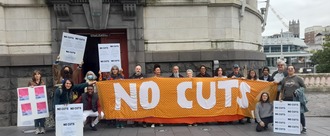

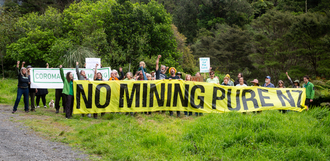

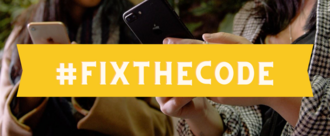
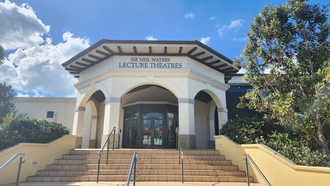
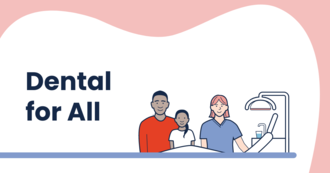
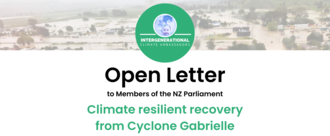
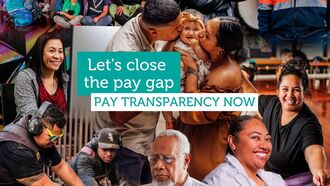
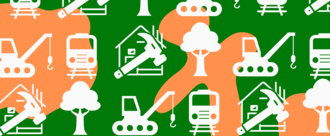.png)
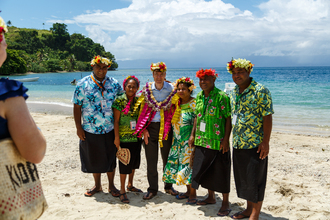%20(1).jpg)
